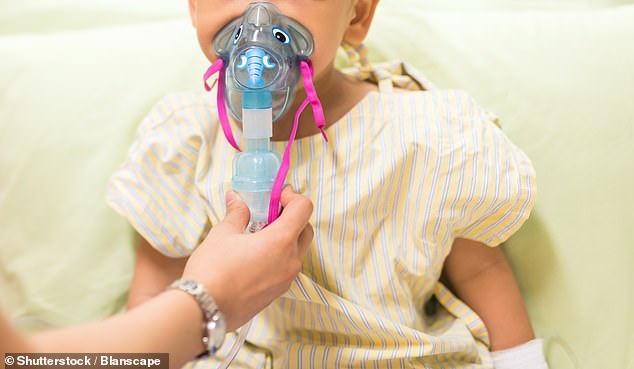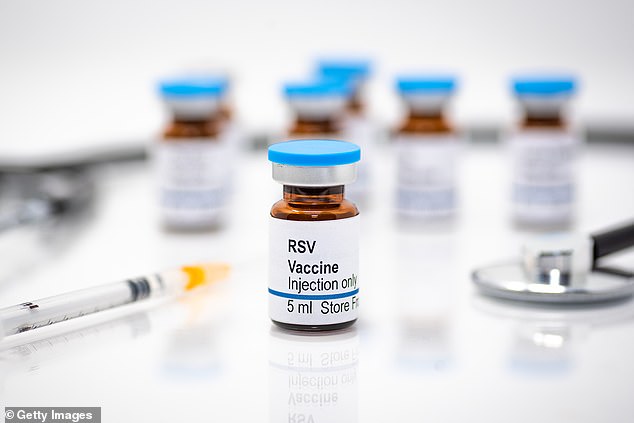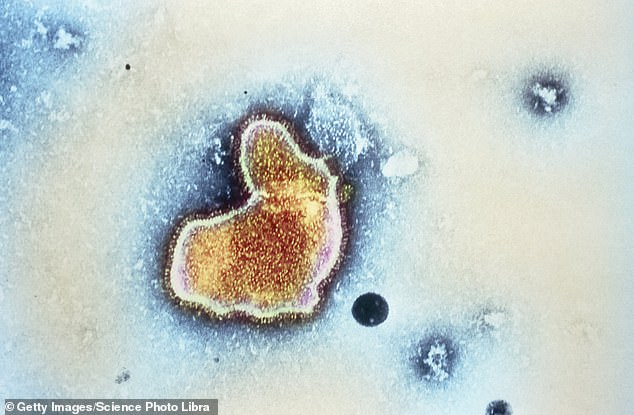The number of children admitted to hospital with respiratory syncytial virus (RSV) and flu has soared in Australia in one of the worst outbreaks of both diseases ever recorded.
Parents are urged to vaccinate their children against the highly contagious viruses as cases soar across the country, with 117,650 people infected with RSV this year.
Most cases occurred in New South Wales, then Queensland, followed by Victoria and South Australia. 7 News reported.
Flu cases are also on the rise, although the flu season is not expected to peak until mid-August, when Queensland experiences the most outbreaks.
Queensland’s Chief Health Officer Dr John Gerrard has warned that flu cases will rise once children in the Sunshine State return to school this week.
During the school holidays, about 20 children were admitted to hospital each day with flu, but Gerrard warned this figure could rise to 50 in the coming weeks.
Dr Gerrard urges all eligible people to get vaccinated to stop the domino effect of the virus that can spread rapidly throughout the household and reach older and more vulnerable family members. The courier mail reported.
Between January and the end of June there were 24,256 cases of flu in Queensland, of which 10 per cent were hospitalised.
Respiratory syncytial virus (RSV) (pictured, RSV under a microscope) is highly contagious and there have been 117,650 cases so far this year.

Queensland health authorities have warned that 50 children a day could be hospitalised with flu over the next few weeks (file photo of sick child)
Although influenza has the highest infection rate in Queensland, RSV cases have doubled since the same period last year, and most hospitalised patients are under two years old.
In New South Wales, flu has largely affected children under 16, but the number of infections rose across all age groups in June.
But RSV cases in New South Wales have been declining since peaking in April.
But in South Australia, children were succumbing to both viruses at a high rate.
Children under the age of five accounted for about half of the state’s 125 patients who were hospitalized with RSV or flu.
Deanne Tingey’s seven-week-old daughter, Winter, contracted RSV about a fortnight ago.
Ms Tingey said her baby’s symptoms had worsened and he needed hospitalisation.
“In the morning she was just sneezing a little bit and sounded a little congested,” she said.

Health authorities are urging parents to vaccinate their children against influenza and RSV as the number of children hospitalised with both viruses rises across Australia.
“Then he stopped feeding completely and hadn’t had a wet diaper all day,” Tingey said.
The mother said hospital staff put Winter on oxygen as soon as she arrived at the hospital, as well as a nasal feeding tube.
Ms. Tingey urges all parents not to send their sick children to daycare to help stop the spread of RSV.
South Australian Public Health Officer Professor Nicola Spurrier said flu numbers in the state were likely to be higher than the previous two years and were “skyrocketing”.
“It’s not too late to think about prevention. It’s not too late to get vaccinated against the flu,” he said.
Professor Spurrier said cases of whooping cough and mycoplasma pneumonia had also increased, but Covid cases were declining.
Despite rising flu cases in South Australia, only 22 per cent of children aged six months to two years have received the flu vaccine, and only 65 per cent of people aged 65 and over are immunised.
Professor Spurrier said passive RSV immunisation is currently only offered to babies born prematurely or children with existing health problems.
The professor said an RSV vaccine should be available for pregnant women in South Australia next year and it is hoped more children will also be able to be immunised against RSV by 2025.


